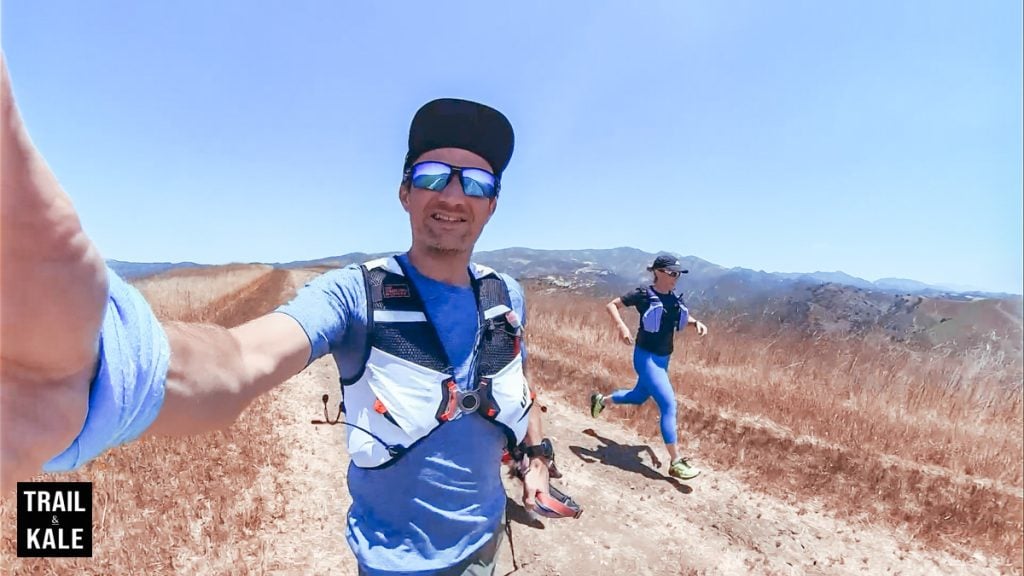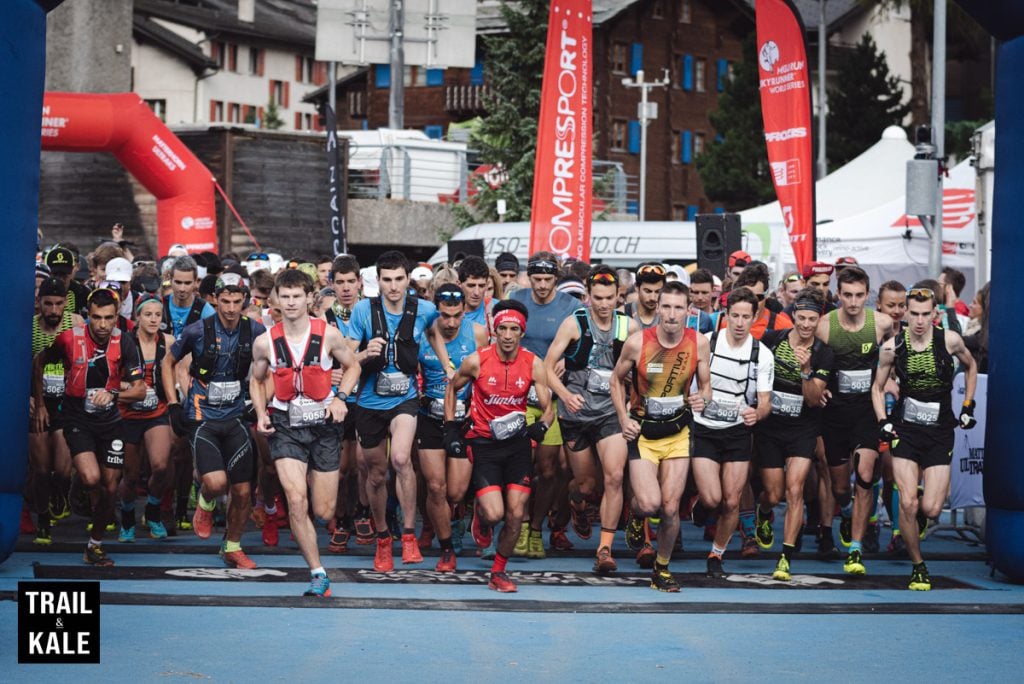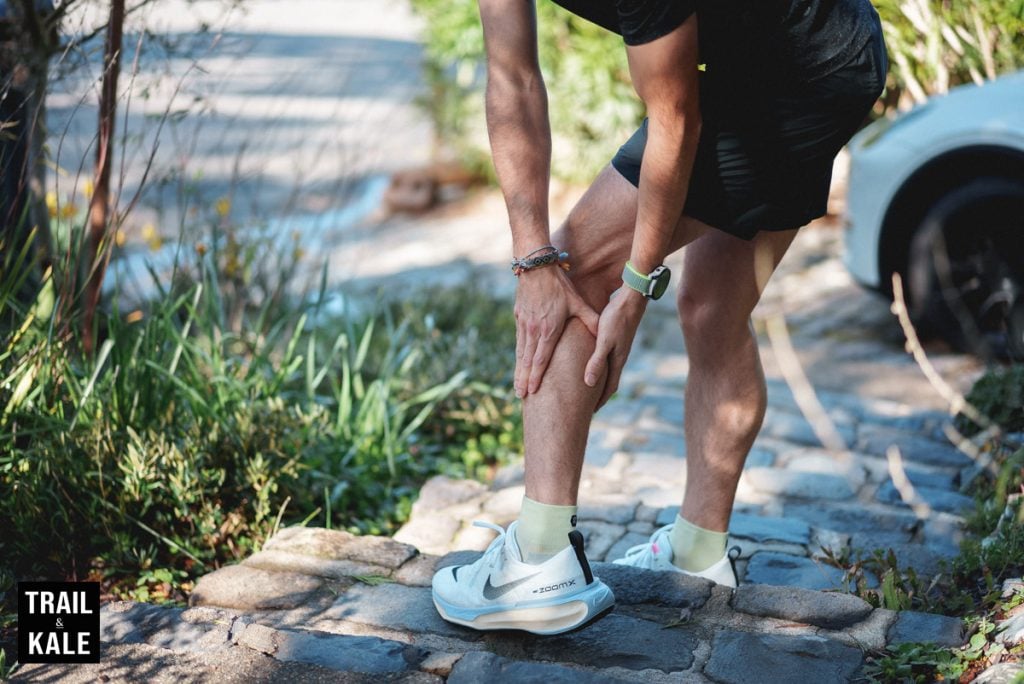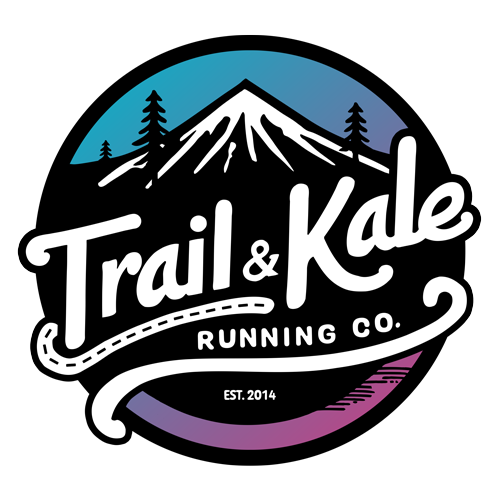As runners, knowing what to eat before a run (and when it’s best to eat it) can make all the difference in how we feel during and after a workout.
Whether you’ll be doing regular morning runs, a 5k race, long run or race (whether that’s a half marathon, marathon or ultra), eating the right pre-run meal can give you the energy you need to power through your run and perform at your best.
In this post, we’ll explore whether you should eat before running, the best pre-run foods for all distances, when to eat your pre-run snack as well as what to eat the night before a half marathon, marathon or ultra marathon race.
We’ll also share our tried-and-tested list of the best foods to eat before running, as well as what not to eat before your run.
There are also certain foods you should avoid eating the night before a race or earlier in the day before a run.
They can adversely affect your performance as well as causing unpleasant issues such as GI distress that can potentially put an end to your race or cause embarrassment. We’ve listed the common culprits at the end of this post so you know what foods to avoid.
Topics covered in this post:
- Should you eat before running?
- What to eat before a run – all distances from 5k to ultra marathon races
- What to eat the night before a half marathon, marathon or ultra marathon race
- Our tried-and-tested list of the best foods to eat before running
- What not to eat before your run

Should you eat before running?
In short… yes, eating before running is generally a good idea and recommended for most runners.
A lack of pre-run fuel can lead to low energy levels, muscle fatigue, and a decrease in overall performance, so eating before running can help to prevent these issues and provide your body with the energy it needs to power through your workout.
Consuming carbohydrates before a run, for example, can increase glycogen stores in your muscles, which can be used for energy during your workout. Taking on the right nutrients can also aid in recovery and muscle repair post-run.
However, the timing and content of your pre-run meal will depend on the length and intensity of your run, as well as your individual digestion and preferences – and there may be situations where it suits you better not to eat before running.
For example, if I’m doing a short run of less than 45 minutes in duration, early in the morning, then I’ll usually drink some water to hydrate, and have my morning coffee before I run, and that’s sufficient for that shorter training session.
However, for a long run of say 60-minutes or more, I always make sure I’ve eaten in advance.
When should you eat before your run?
When to eat before running depends on several factors, including the time of day, intensity of your run, and duration of your workout.
In general, it’s best to eat something containing carbohydrates and protein about 90 minutes before your run, although the time between eating and running may be shorter if you have a smaller or lighter pre-run snack and don’t have any really intense hill repeats or speed intervals planned.
What to eat before running in the morning
If you’re running first thing in the morning, a light snack such as a banana or a slice of toast with honey or peanut butter may be sufficient – these are some of my go-tos that I can eat up to around 45 minutes before I head out the door to train.
For a high-intensity or long-duration run, a more substantial meal a few hours before may be necessary, to give your body time to digest what you ate so it doesn’t still sit in your stomach when you’re running.
It’s important to experiment with different options to find what works best for you.
What about fasted running?
There are some people out there who may be proponents of what’s known as ‘fasted running’, which is exactly as it sounds – running without having eaten in the last say 8-14 hours.
I’m not a fan of this concept for any runs of more than 45 minutes or so because your body will start to need fuel for that effort.
Running without taking on board carbs and nutrients to fuel your training may compromise your endurance, break down muscles, or make you extra hungry after running so you make poor food choices the rest of the day!
It could also simply make you feel unwell, or even faint, which is potentially dangerous.
Plus you need nutrients to heal muscles, repair and replenish energy stores for the rest of your day and recovery, especially if you’re training for a distance running race like a half marathon, marathon or ultramarathon, it’s just not worth compromising on nourishing your body to power you through tough training sessions.
Don’t forget to hydrate before (as well as during) your runs
Although food is important, not drinking enough water can affect your performance (as well as digestion), so don’t forget to hydrate, too!
If you need to carry water for a long run or when running in hot weather, consider getting a running hydration vest, which is a comfortable way to carry water and other essentials, including snacks and energy gels for those longer runs and races.

What to eat before a run to ensure you’re fueling properly
In this section I’m sharing my favorite meals and snacks to give you an idea of the best types of foods to fuel your run that will provide an appropriate source of energy for the run length, duration and intensity you have planned.
What to eat before a 5k
For most people, a 5k race is going to be a high-intensity workout that will last around 30 minutes or less.
So while I definitely suggest eating something beforehand, make it a small snack that provides a good dose of carbs to fuel that effort.
My go-to before a 5k is a banana. A banana is one of the best foods to eat before a run. They’re rich in potassium, full easily digestible carbs, without being heavy on the stomach.
I would eat this at least 30 minutes before going to warm up for the race. Experiment on your training runs to see how far before your run feels like a good time to eat – your body may need longer to digest it.
If you’re training for your first 5k, then you may find our running for beginner, couch to 5k training plan, and ‘Run a Faster 5K’ Training Plan resources helpful for your training journey. Or if y
What to eat before a track meet
Similar to a 5k run, track races are usually relatively short so just eat something smaller, whether that’s a meal or snack.
What to eat before a 10k
Although twice as long as a 5k, I generally eat a similar snack or meal before a 10k, so that’s usually a banana, which I sometimes supplement with half a bagel and some honey, eaten longer than 90 minutes before I plan to run or have a scheduled race.
I run my 10ks at a high intensity, too, so although I want to eat something, I can’t eat anything too dense or large.
For more 10k training tips, visit our 10k training plans homepage.
What to eat before a half marathon race
Knowing what to eat before a half marathon is a little trickier than a shorter or longer distance because they’re run at that moderately-hard intensity but for a relatively long period of time, at least 90 minutes to more than 2 hours for most people.
For this reason, it’s best to eat a couple of hours before your run.
In terms of what to eat before a half marathon, foods with denser, slow-release carbohydrates are a good choice.
Some good options to try are:
- Whole wheat toast with nut butter (such as peanut or almond butter)
- Banana on a bagel
- A bowl of oatmeal, fruit (dried apricots or fresh fruit are a good option), sugar or jam optional.
If you plan to use energy gels during your race you could also consider having one of those close to your run, say 20-30 minutes before the race starts, for an extra carb boost that’s easily digestible.
Visit our half marathon training plans homepage for more half marathon training tips and our free downloadable training plans.
What to eat before a marathon race (or long run)
Most people running a marathon are going to be running for at least three hours, some hours more, so you need to eat a decent pre run meal or snack a couple of hours before you start running to provide your body with fuel.
When running a marathon, most people are going to also need (or want) to eat during the race. This applies to any run or race lasting longer than 90 minutes
So, you can’t over-eat for breakfast and have that fuel you for 3-4 hours, nor would you want to as you’ll be very uncomfortable.
My personal recommendation is a medium sized bowl of oatmeal, with some dried fruit. This is what fills me up the most, for the longest, without weighing me down while I digest it. I eat it at least 90 minutes before the race starts.
If you’re new to marathon training, visit our marathon training plans homepage for more marathon training tips and our free downloadable training plans.
What to eat before an ultramarathon race
If you’re planning to run an ultra marathon then you’ve probably worked out the foods and sports drinks that work best for you over shorter distances.
What you eat before an ultra marathon that works best for you is probably going to be similar to what you’d eat before a marathon, especially if you have experience of trail marathons, which can take twice as long as as the same distance on a road, depending on the terrain, climate conditions and elevation.
Our popular 50k ultramarathon training plan guide has more tips for training for, racing and recovering from a 50k+ ultra race, based on our real-world experience of running long-distance races.

What to eat the night before running a marathon, half marathon or ultra race
You’ve probably heard of other runners carb loading before a race. But should you do it?
There are conflicting opinions on this subject, among runners, coaches and sports nutritionists.
Carb loading is basically the practice of eating a diet more carb-heavy in the days leading up to a race (or other event).
The reason people do it is because as a result of doing so, your muscles may be able to store more glycogen (fuel) that can then be beneficial to you on race day.
This may not be for everyone, as the shift in mix of what you put in your body during those days can cause issues such making you feel bloated, and elevated blood sugar that may not be good for you.
It’s also worth noting that this practice is probably best done over a series of days, in a thoughtful manner. So, consuming a load of pasta, potatoes or rice (more than you normally would for an evening meal) the night before your race may cause your body to feel unnecessarily heavy or bloated as your body works to digest it overnight.
If this is what you thought carb loading was, then know there’s better ways to approach it!
Personally, I simply ensure that I’m eating particularly well in the days leading up to a race. This also means that I certainly don’t cut back on my carb intake during that time.
So, the night before a long run, I would normally eat a balanced meal that’s heavy in whole foods, including either potatoes or rice, a mixture of whole foods including natural sources of fiber, fats and protein.
Tried-and-tested: The best foods to eat before running
These are my top recommendations for pre-run meals that you can try and see what works best.
- Bagel or toast with nut butter and/or honey
- Banana, or a portable fruit jerky such as this awesome Solely fruit jerky (that contains 1 whole banana per packet!)
- Oatmeal with a dash of sugar, fruit jam or chopped dried fruit (apricots are a personal favorite dried fruit for before and during long runs)
- Other high-carb natural foods including granola bars and Clif Bars.
For runs starting later in the day you may want to consider the following pre-run meals:
- Boiled, salted potatoes with eggs, or nut butter
- A baked potato with your choice of protein
- A bowl of pasta with a fairly bland sauce (no spice or high-fiber veggies!).
Pre-run snack ideas
- Crackers with peanut butter
- Stroopwaffles
- Energy gel
- Banana
- Dried apricots
Pre-run sports nutrition
If you’re considering drinking a sports drink, make sure it’s one that’s well-suited to runners. A personal top pick is Tailwind, which is a sports nutrition powder you mix with your water and drink before and during your run or race.
Tailwind nutrition is not only a sports drink, but will actually provide you with the carbs you need during your run, so you can drink it instead of eating food on those long runs, including ultramarathons in situations where you can’t stomach eating solid foods!
Should you drink coffee before running?
Some people find that drinking coffee before a run is a bad idea. That is, if you’re sensitive to coffee, you may find that it causes gi distress such as stomach cramps or diarrhea.
I normally have a couple of small coffees (Flat Whites, Gibraltars or Cortados) on most mornings, whether I am running or not.
I stick to that routine and have at least one coffee before my morning run.
I find that having a coffee means I’ll go to the toilet before my run and won’t have my morning run interrupted by the urge to use the bathroom, which is what can happen without the assistance a cup of coffee provides earlier in the day.
But… each to their own on this one. You do you!

Don’t eat these foods before running any distance
Our bodies all react differently to different types of foods and any intolerance can be exacerbated while running.
For example, I have taken food intolerance tests such as Check My Body Health which informed me of loads of potential and surprising intolerances I have to certain foods that I wasn’t aware of previously, so I’m mindful of this when planning pre-run snacks and meals.
Generally, it’s best to avoid eating foods that are harder to digest or could irritate your stomach. That includes:
High fiber foods
This includes vegetables that are high in fiber such as legumes, broccoli and sprouts, as well as fruits like apples and pears.
Meat and certain dairy products such as cheese
Foods high in fat can take longer to digest and are best avoided. Definitely steer clear of them if they’re fried. In fact, it’s best not to eat fried foods altogether.
Spicy foods
Spicy food can be fine to have normally, but if you consume a spicy meal before your run then your body may not thank you during or afterwards. You’ve been warned 😉
In summary
I hope that you’ve found the advice in this running food guide helpful, and you now have a good idea of what to eat before a run, and when is best to eat it.
It absolutely pays to listen to your body and practice dialing in your pre run meals until you find the combination of foods that works best for you.
Visit our Running 101 page for more expert running advice and check out our running gear reviews and buyer’s guides while you’re there!











Heeey Helen. Agree on almost everything except one thing. If you’re away from home and don’t have access to any breakfast/you don’t like the breakfast provided by the night-place, I would highly suggest you make a peanut butter whole sandwich at home. I assure you, it keeps its freshness even after the whole night. 🙂
Hi Chiara, thanks for sharing, that’s a great point! If you can get the sandwiches prepared before leaving home or work, it’s great to hear they don’t taste bad when eaten the next morning 🙂
I go with half banana and small boiled potatoe, and a kid size fruit jam pouch. I use the same during the trail run every hour or so.
Great tips!